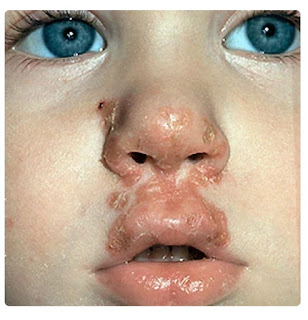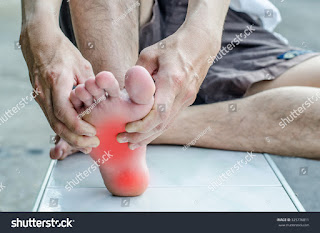Sexual Health; Overcoming Erectile Dysfunction
Written by Timothy Okooboh (PharmD)
Erectile dysfunction (ED) commonly known as impotence, is a sexual disorder experienced by men in which a man has difficulty achieving penile erection sufficient enough to enjoy sexual intercourse. The man could be unable to achieve erection, unable to achieve hard enough erection or he could be unable to sustain the erection long enough to enjoy sexual intercourse with his partner.
Erectile dysfunction can affect men of all ages. Getting older doesn't cause ED, it only increases the chances of developing ED. 50 percent of men between the ages of 40 and 70 have ED. 7 in 10 men aged 70 and and above have ED.
Erectile dysfunction can be very embarrassing for a man to even discuss with friends or even a medical personnel. It can adversely affect marriages and other sexual relationships as it could lead to infidelity, divorce, low self esteem and depression. Hence it is worth learning about in order to know how to reduce the risks of developing ED as well as knowing what to do when it occurs. This information is therefore beneficial to both sexes.
How does erection occur?
Penile erection occurs when there is sexual arousal. The penis has a muscle known as corpora cavernosa which is rich in blood vessels. During sexual arousal the brain sends nerve messages to the penis causing the nerves to release nitric oxide (NO). Nitric oxide stimulates the production of another substance known as cGMP (cyclic guanylate monophosphate) which causes the arteries in the corpora cavernosa to relax, allowing blood to flow in and fill the open spaces. This inflow of blood makes the penis to expand and thicken, hence an erection is formed.
Risk Factors/Causes of Erectile Dysfunction
A knowledge of the risk factors for erectile dysfunction is one of the first steps for preventing or overcoming the disorder.
The risk factors can be classified into physical and psychological risk factors.
Physical Risk Factors for Erectile Dysfunction
1. Smoking
Cigarette smoke contains harmful chemicals such as nicotine which can damage the inner lining of arteries and cause narrowing or constriction of the arteries thereby reducing blood flow. Smoking is therefore a risk factor of several cardiovascular diseases. When this happens to the arteries of the penis, erectile dysfunction can occur since erection occurs as a result of increased blood flow to the penis during sexual arousal.
2. Overweight
Overweight can be associated with excessive cholesterol and fatty substances in the body. These substances can clog the arteries thereby reducing blood flow to the organs including the penis.
3. Poorly managed Diabetes
It is estimated that 35 to 75 percent of men with diabetes will experience at least some degree of erectile dysfunction in their life time.
Above the age of 50, the likelihood of having difficulty with erection occurs in 50 to 60 percent of men with diabetes mealitus.
This is because persistent hyperglycemia associated with poorly managed diabetes can damage nerves and arteries.
4. Drugs
Erectile dysfunction is an dverse effect of certain drugs. According to the Harvard Special Health Report, an estimated 25 percent of all ED is a side effect of drugs.
Drugs associated with erectile dysfunction include hydrochlothiazide, atenolol, methyl dopa, cimetidine, amitriptyline, buspirone, phenytoin, prazosin etc.
It is therefore important to consult your doctor or pharmacist before taking any medication.
5. Other physical risk factors or causes include:
Hypertension, parkinson's disease, alcohol, marijuana, cocaine, spinal cord injury, injury to the pelvic area and radiation therapy to the pelvic area.
Psychological Risk Factors for Erectile Dysfunction
Psychological risk factors for erectile dysfunction include stress, depression, anxiety, guilt, sexual identity crisis etc. These psychological issues can affect sexual arousal in situations when it is normally expected to occur. When these issues are persistent, erectile dysfunction can regularly occur even when the man is not in such psychological mood.
It is important to note that while psychological risk factors like stress and depression can lead to erectile dysfunction in men, erectile dysfunction can further worsen these psychological issues.
Treatments for Erectile dysfunction
1. Phosphodiesterase -5 Inhibitors are the first line of drugs for the treatment of erectile dysfunction. They include drugs such as sildenafil, tadalafil, vardenafil and avanafil. These drugs are prescription only medicines, this means that they should be recommended by a medical expert through a written prescription. A doctor may check for heart diseases and ask about other medications being taken before prescribing these drugs. For instance, they should not be taken with glyceryl trinitrate ( normally used for treating angina).
These drugs work by inhibiting an enzyme ( Phosphodiesterase 5) that breaks down a substance known as cGMP. Therefore, they cause the accumulation of cGMP which then stimulates the dilation of the arteries of the corpora cavernosa, facilitating the inflow of blood to the penis, hence causing erection.
Side effects of these drugs include head aches, flushing, indigestion etc.
2.Alprostadil Injection and suppository
Alprostadil is a synthetic prostaglandin (PGE1). It works by dilating the arteries of the penis and increase blood flow into it. It is recommended for men whom oral drugs have not effectively taken care of erectile dysfunction.
The injection is administered directly into the penis. The doctor will usually teach the patient how to accurately inject the drug because if not properly administered it can damage the penis.
The injection is sold as Caverject, Edex, Prostin VR.
The suppository form is called MUSE (Medicated Urethral System for Erection).
After injecting Alprostadil to the penis, erection can occur within 5-20 minutes. Pain at the site of injection is usually a common side effect.
3. Vascular Surgery
Surgery is a last resort and will only be used in the most extreme cases. Vascular surgery attempts to correct blood vessels associated with erectile dysfunction.
4. Sex therapy
Sex therapy is a non-pharmacological treatment for erectile dysfunction. It addresses the psychological factors that contribute to ED. These factors include stress, anxiety, depression, sexual identity crisis, religious or cultural taboos etc.
Sex therapy involves practices such as anxiety reduction and desensitization, cognitive behavioral therapy, increased sexual stimulation, interpersonal assertiveness and couples' communication training.
Nutritional Supplements for Erectile Dysfunction
Some nutritional supplements are recommended by medical experts for the prevention of erectile dysfunction as well as an adjunct to the treatment of erectile dysfunction. They include :
1. L-Arginine
L-Arginine is a precursor in the biosynthesis of nitric oxide (NO). As earlier stated, NO stimulates the production of cGMP which causes dilation of the arteries in the penis, thereby increasing blood flow into the penis which brings about erection.
2. Panax Ginseng
This herbal substance has long been considered by the Chinese as an aphrodisiac. It helps to promote relaxation of smooth muscles in the penis. A study in spermatogenesis found that it makes the penis harder, produces long-lasting erection and improves testosterone levels.
3. Vitamin D
Vitamin D protects endothelial cells that line blood vessels. Researchers in John's Hopkins University once carried out a research and found that men who were deficient in vitamin D were 32 percent more likely to have trouble getting it up than those with sufficient levels after adjusting other ED risks.
4. Gingko Bilboa
Gingko bilboa is a herb used in Chinese medicine to improve blood flow and oxygen to the brain. It therefore has the potential of improving erection in ED patients. It is believed to effectively counteract sexual dysfunction caused by certain antidepressants.
It is important to note that these supplements have side effects and can interact with drugs used for treating erectile dysfunction as well as other medications. Therefore self medication is not advised. Consult your doctor or pharmacist before taking any medications.
Erectile dysfunction (ED) commonly known as impotence, is a sexual disorder experienced by men in which a man has difficulty achieving penile erection sufficient enough to enjoy sexual intercourse. The man could be unable to achieve erection, unable to achieve hard enough erection or he could be unable to sustain the erection long enough to enjoy sexual intercourse with his partner.
Erectile dysfunction can affect men of all ages. Getting older doesn't cause ED, it only increases the chances of developing ED. 50 percent of men between the ages of 40 and 70 have ED. 7 in 10 men aged 70 and and above have ED.
Erectile dysfunction can be very embarrassing for a man to even discuss with friends or even a medical personnel. It can adversely affect marriages and other sexual relationships as it could lead to infidelity, divorce, low self esteem and depression. Hence it is worth learning about in order to know how to reduce the risks of developing ED as well as knowing what to do when it occurs. This information is therefore beneficial to both sexes.
How does erection occur?
Penile erection occurs when there is sexual arousal. The penis has a muscle known as corpora cavernosa which is rich in blood vessels. During sexual arousal the brain sends nerve messages to the penis causing the nerves to release nitric oxide (NO). Nitric oxide stimulates the production of another substance known as cGMP (cyclic guanylate monophosphate) which causes the arteries in the corpora cavernosa to relax, allowing blood to flow in and fill the open spaces. This inflow of blood makes the penis to expand and thicken, hence an erection is formed.
Risk Factors/Causes of Erectile Dysfunction
A knowledge of the risk factors for erectile dysfunction is one of the first steps for preventing or overcoming the disorder.
The risk factors can be classified into physical and psychological risk factors.
Physical Risk Factors for Erectile Dysfunction
1. Smoking
Cigarette smoke contains harmful chemicals such as nicotine which can damage the inner lining of arteries and cause narrowing or constriction of the arteries thereby reducing blood flow. Smoking is therefore a risk factor of several cardiovascular diseases. When this happens to the arteries of the penis, erectile dysfunction can occur since erection occurs as a result of increased blood flow to the penis during sexual arousal.
2. Overweight
Overweight can be associated with excessive cholesterol and fatty substances in the body. These substances can clog the arteries thereby reducing blood flow to the organs including the penis.
3. Poorly managed Diabetes
It is estimated that 35 to 75 percent of men with diabetes will experience at least some degree of erectile dysfunction in their life time.
Above the age of 50, the likelihood of having difficulty with erection occurs in 50 to 60 percent of men with diabetes mealitus.
This is because persistent hyperglycemia associated with poorly managed diabetes can damage nerves and arteries.
4. Drugs
Erectile dysfunction is an dverse effect of certain drugs. According to the Harvard Special Health Report, an estimated 25 percent of all ED is a side effect of drugs.
Drugs associated with erectile dysfunction include hydrochlothiazide, atenolol, methyl dopa, cimetidine, amitriptyline, buspirone, phenytoin, prazosin etc.
It is therefore important to consult your doctor or pharmacist before taking any medication.
5. Other physical risk factors or causes include:
Hypertension, parkinson's disease, alcohol, marijuana, cocaine, spinal cord injury, injury to the pelvic area and radiation therapy to the pelvic area.
Psychological Risk Factors for Erectile Dysfunction
Psychological risk factors for erectile dysfunction include stress, depression, anxiety, guilt, sexual identity crisis etc. These psychological issues can affect sexual arousal in situations when it is normally expected to occur. When these issues are persistent, erectile dysfunction can regularly occur even when the man is not in such psychological mood.
It is important to note that while psychological risk factors like stress and depression can lead to erectile dysfunction in men, erectile dysfunction can further worsen these psychological issues.
Treatments for Erectile dysfunction
1. Phosphodiesterase -5 Inhibitors are the first line of drugs for the treatment of erectile dysfunction. They include drugs such as sildenafil, tadalafil, vardenafil and avanafil. These drugs are prescription only medicines, this means that they should be recommended by a medical expert through a written prescription. A doctor may check for heart diseases and ask about other medications being taken before prescribing these drugs. For instance, they should not be taken with glyceryl trinitrate ( normally used for treating angina).
These drugs work by inhibiting an enzyme ( Phosphodiesterase 5) that breaks down a substance known as cGMP. Therefore, they cause the accumulation of cGMP which then stimulates the dilation of the arteries of the corpora cavernosa, facilitating the inflow of blood to the penis, hence causing erection.
Side effects of these drugs include head aches, flushing, indigestion etc.
2.Alprostadil Injection and suppository
Alprostadil is a synthetic prostaglandin (PGE1). It works by dilating the arteries of the penis and increase blood flow into it. It is recommended for men whom oral drugs have not effectively taken care of erectile dysfunction.
The injection is administered directly into the penis. The doctor will usually teach the patient how to accurately inject the drug because if not properly administered it can damage the penis.
The injection is sold as Caverject, Edex, Prostin VR.
The suppository form is called MUSE (Medicated Urethral System for Erection).
After injecting Alprostadil to the penis, erection can occur within 5-20 minutes. Pain at the site of injection is usually a common side effect.
3. Vascular Surgery
Surgery is a last resort and will only be used in the most extreme cases. Vascular surgery attempts to correct blood vessels associated with erectile dysfunction.
4. Sex therapy
Sex therapy is a non-pharmacological treatment for erectile dysfunction. It addresses the psychological factors that contribute to ED. These factors include stress, anxiety, depression, sexual identity crisis, religious or cultural taboos etc.
Sex therapy involves practices such as anxiety reduction and desensitization, cognitive behavioral therapy, increased sexual stimulation, interpersonal assertiveness and couples' communication training.
Nutritional Supplements for Erectile Dysfunction
Some nutritional supplements are recommended by medical experts for the prevention of erectile dysfunction as well as an adjunct to the treatment of erectile dysfunction. They include :
1. L-Arginine
L-Arginine is a precursor in the biosynthesis of nitric oxide (NO). As earlier stated, NO stimulates the production of cGMP which causes dilation of the arteries in the penis, thereby increasing blood flow into the penis which brings about erection.
2. Panax Ginseng
This herbal substance has long been considered by the Chinese as an aphrodisiac. It helps to promote relaxation of smooth muscles in the penis. A study in spermatogenesis found that it makes the penis harder, produces long-lasting erection and improves testosterone levels.
3. Vitamin D
Vitamin D protects endothelial cells that line blood vessels. Researchers in John's Hopkins University once carried out a research and found that men who were deficient in vitamin D were 32 percent more likely to have trouble getting it up than those with sufficient levels after adjusting other ED risks.
4. Gingko Bilboa
Gingko bilboa is a herb used in Chinese medicine to improve blood flow and oxygen to the brain. It therefore has the potential of improving erection in ED patients. It is believed to effectively counteract sexual dysfunction caused by certain antidepressants.
It is important to note that these supplements have side effects and can interact with drugs used for treating erectile dysfunction as well as other medications. Therefore self medication is not advised. Consult your doctor or pharmacist before taking any medications.







Nice piece Dr. Tim. This is one area of health i feel we don't really talk about as professionals, and it's a very serious issue affecting vast number of men. Please do we have foods that are aphrodisiacs? This might serves as non-drug therapy as well. Thanks alot for this piece
ReplyDeleteThank you sir.
DeleteThere are some food substances that to an extent are scientifically proven to be aphrodisiacs. Two of them were spoken of in my post. They are Panax ginseng ( red ginseng) and Gingko bilboa.
In addition Maca, a sweet root vegetable, has been proven to help boost libido. Animal studies report increases in libido and erectile function in male rats fed with Maca.
Also, Pistachio nuts has been scientifically proven to improve blood flow contributing to firmer erection.
There are other food substances that are believed to be aphrodisiacs though without any scientific evidence. They include chocolate, honey and oysters.